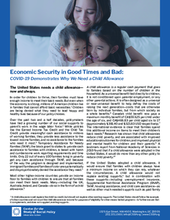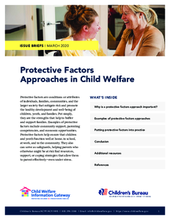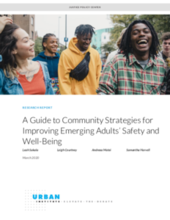Displaying 641 - 650 of 2176
This volume provides an in-depth examination of the history and goals of the foster care system in the US, how and why it fails to adequately meet children’s needs, and what it would take to actualize meaningful improvements in children’s experiences and outcomes.
This chapter provides a review and analysis of the “best interests of the child” standard in foster care policy and practice.
This survey of the statutory provisions and case law of all 50 states [of the USA] and the District of Columbia includes the rights of children to parental support, inheritance, and familial association remaining upon termination of parental rights.
This study examines the effects of child welfare, mental health, and drug/alcohol system experiences on jail involvement, as mediated by juvenile justice placement, for Black and White youth/young adults.
This article explores contemporary Muslim Americans’ negotiations of Islamic law to find ethical ways to care for non-biological children within their household.
If the United States adopted a child allowance, says this brief from the Center for the Study of Social Policy, it would ensure that families with children always have a minimum income on which they can rely, whatever the circumstances.
This issue brief provides an overview of U.S. national protective factors approaches to prevent child abuse and neglect.
This guide summarizes findings from relevant literature on what helps emerging adults (including youth transitioning from foster care) succeed, describes examples of how US communities are innovating to meet those needs, and shares key takeaways from interviews with emerging adults.
In this story for the March 2020 issue of the Atlantic, David Brooks writes about U.S. society's "shift from bigger and interconnected extended families to smaller and detached nuclear families" and the "devastation it has wrought," including how it "ultimately led to a familial system that liberates the rich and ravages the working-class and the poor."



